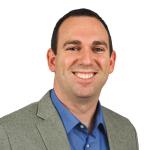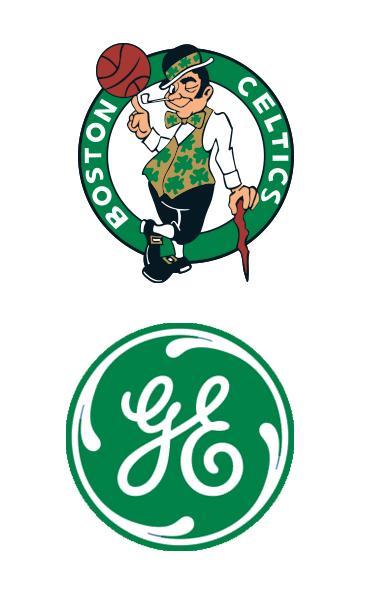Sport Management Professor Applauds New Celtics-GE Partnership
February 3, 2017

Professor Katz was applauding two initiatives that will partner the Celtics with General Electric. The first, announced in January, will discreetly convey the GE logo—in green—on Celtics jerseys. The new look, which debuts next fall, should prove cost effective for General Electric, says Katz. The company, he notes, grossed $124 billion last year.
The second, a technology partnership, will lend GE’s data analytic prowess to a host of Celtics undertakings, including court strategies, business programs, and player injury prevention. GE technology, including energy efficient lighting and medical equipment, will also grace a Celtics practice facility in Brighton, which will open in 2018.
Identifying with Boston—New and Old
GE moved its corporate headquarters from Fairfield, Connecticut to downtown Boston last August. Its CEO, Jeffrey Immelt, is banking on the science- and data-driven company’s symbiosis with the city’s exceptional knowledge-driven economy. Isenberg’s own footprint in that ecosystem is also expanding. Increasing numbers of Isenberg graduates work in Greater Boston and a new Boston-based Isenberg speaker series, Driven, engages seminal innovation leaders, who share insights with Boston’s business community.*

The Celtics-GE branding initiative is part of a new three-year trial program that will allow NBA teams to sport the logo of a single sponsor on their jerseys. In the Celtics-GE hybrid, the modest-sized GE logo sits above the team’s name, close enough to connect the two brands but with enough negative space between them to ensure their separate identities. “Most fans will be unable to make out the sponsor’s logo from the stands,” notes Katz. “It’s largely a vehicle for TV and other media.”
For both brands, the new relationship has multiple fits, observes Katz. It transfers passion for the team to General Electric, a newcomer to Boston. That strengthens the company’s identification with one of Boston’s signature icons (the Celtics) and the city itself. The team, Katz continues, gains analytical resources from GE and expands its identification with the new “tech-driven” Boston.
“The value for both partners is in the association,” Katz emphasizes. “Unlike some sponsorship relationships, which are skewed toward one of the two partners, this one seems to significantly elevate both brands. It’s a mutually beneficial relationship. ” To date, Katz notes, two other NBA teams have partnered with sponsors in the new program—the 76ers with StubHub and the Sacramento Kings with Blue Diamond Almonds. One can only guess, he wonders, how the smaller market Kings will benefit through their identification with a nut. “A successful sponsorship association,” he emphasizes, “should be related, prominent, congruent, and plausible. I’m not sure that the nut company really meets any of these for the Kings.”
*In September, Driven hosted Apple cofounder Steve Wozniak. On February 16, the series will welcome Zipcar cofounder Robin Chase to the UMass Club in Boston.